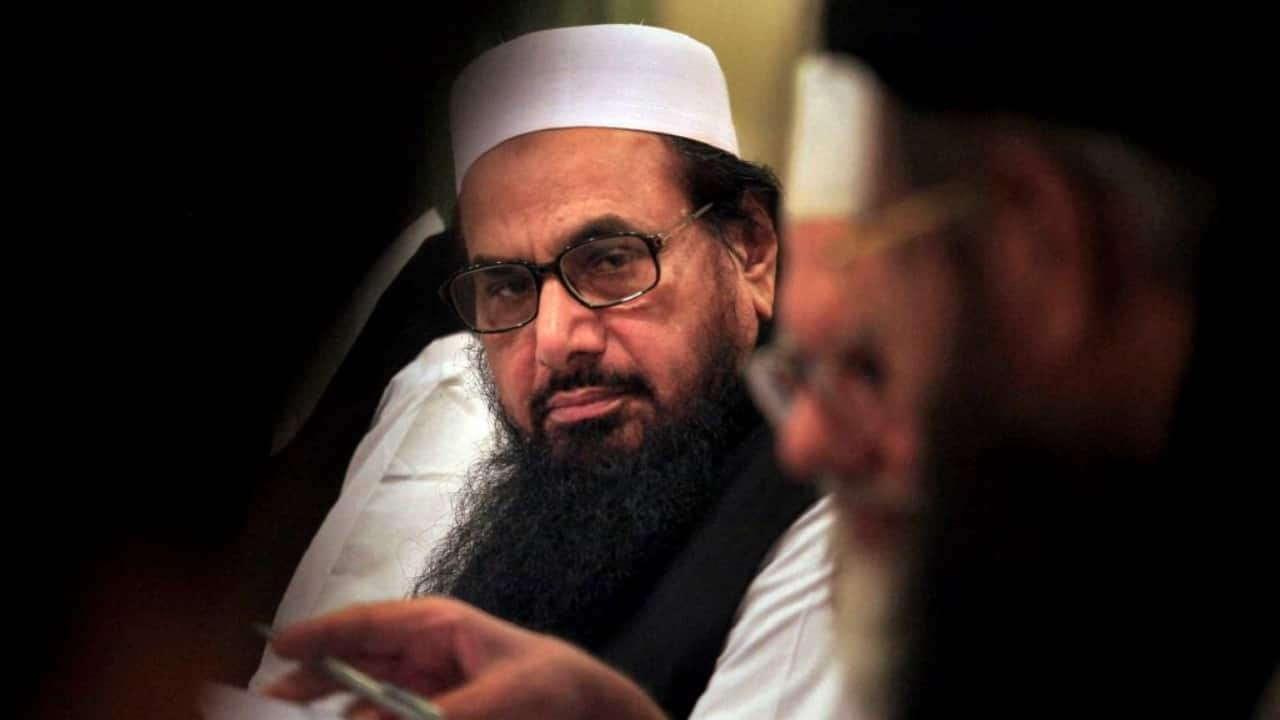
Origins of Lashkar-e-Taiba: How Hafiz Saeed’s terror army did Pakistan's 'dirty work' for decades
Published on 26/04/2025 08:11 PM
India's long held argument that Pakistan is a rogue state that harbours, supports and funds terrorists was substantiated — in a way — by the neighbouring country's defence minister Khawaja Asif himself.
In a recent interview to UK-based Sky News amid escalating tensions with India, Asif said that Pakistan has aided terror groups for over three decades and blamed US and its Western allies for making it do their "dirty work". Asif was referring to Pakistan's involvement in Afghanistan during the Soviet-era Cold War between US and Russia and the post-9/11 liasoning with Taliban.
One such terror group from that era was Lashkar-e-Taiba, whose proxy The Resistance Force (TRF) carried out the deadly Pahalgam attack on April 22 which left 25 Indians and a Nepalese national dead.
The year was 1987. The Soviets were very much in Afghanistan and al-Qaeda was still a year away from formation. Pakistani terrorist Hafiz Saeed, who was part of Afghan Mujahideens’ jihad against Russian troops, decided to form an armed wing of Markaz Dawat-ul Irshad.
Thus, Lashkar-e-Taiba came into existence. Lashkar-e-Taiba, which literally translates into ‘Army of the Good’, was made of Pakistan’s Sunni Muslims. The followers in the ‘Army of the Pure’ believed in Ahl-e-Hadith (AeH) Islam, a South Asian form of Salafism. There was a marked difference between Lashkar and other terror groups at that time.
Lashkar publicly rejected sectarian violence and said that only non-Muslims must be targeted. This also meant that Lashkar was against waging jihad against Pakistan, a point that helped in its continued survival.
While Pakistan’s intelligence agency ISI has long denied its role in aiding the group, several reports and probes have revealed how it helped in funding for Lashkar. In its early days, Lashkar fighters went into battle along with the Mujahideens against Soviets in Afghanistan. Till this day, Hafiz Saeed is the ‘emir’ of Lashkar-e-Taiba. The terror group structured itself in a quasi-military organisation. There are Supreme Commanders and Deputy Commander in Lashkar, who directly report to Saeed. The group is further divided into regional commanders, vertical command structure. However, Hafiz Saeed has total control over the group’s operations.
Once the Afghan-Soviet War ended in early 90s, Lashkar shifted its focus on Jammu and Kashmir. At that time, the state was embattled in insurgency and exodus of Kashmir Pandits.
The terror group first gained notoriety when it killed 16 Hindus in Kashmir in 1996. This was the time when the group shifted its focus from military targets to civilian non-Muslims. Three years later, little before the Kargil War, the group introduced a lethal modus operandi – Fidayeen attacks. These suicide squads made up of two or at most four terrorists used relatively small firearms such as hand grenades to cause maximum damage.
From there on, Lashkar-e-Taiba’s footprints were everywhere – 2001 Parliament attack, 2006 Mumbai train blasts and the deadliest of them all – the 26/11 attacks of 2008.
The groups operational tactics have been simple and very deadly. Use of AK-47s and other assault rifles, extensive use of IEDs meant that there was no need of prior training or any kind of expertise. The group that has been recruiting young men from all over Pakistan and Kashmir has used these tactics to incur maximum losses in highly symbolic terror attacks on India in the last three decades.
Radicalisation also plays a pivotal role in this. Mean with highly radicalised ideological background can easily commit themselves for what they term as ultimate ‘martyrdom.’
In 2001, in the fallout of the 9/11 attacks, the US banned Lashkar and included it in the ‘US Treasury Department’s Office of Foreign Asset Control’ list. A year later, Pakistan announced freezing Lashkar’s assets. However, agencies claim that this is nothing but a hogwash. Its umbrella organisation Jamaat ud-Dawa continues to work in Pakistan. Though it has been banned in Pakistan since 2019, the group has been involved in various social activities such as building mosques and undertaking various kinds of charities.
Pahalgam terror attack is a stark reminder that the ‘Army of Pure’ is still a security headache for India even as both Islamabad and Rawalpindi continue to play the old, broken records.
Discover the latest Business News, Budget 2025 News, Sensex, and Nifty updates. Obtain Personal Finance insights, tax queries, and expert opinions on Moneycontrol or download the Moneycontrol App to stay updated!
${res.must_watch_article[0].headline}
Sensex Today RIL Q4 Results 2025 Jammu Kashmir News Live CSK vs SRH Live Score Chris Wood HDFC Securities Asaduddin Owaisi Manipur HS Result KTET Result 2025 IPL Points Table 2025
Business Markets Stocks India News City News Economy Mutual Funds Personal Finance IPO News Startups
Home Currencies Commodities Pre-Market IPO Global Market Bonds
Home Loans up to 50 Lakhs Credit Cards Lifetime Free Finance TrackerNew Fixed Deposits Fixed Deposit Comparison Fixed Income
Home MC 30 Top Ranked Funds ETFs Mutual Fund Screener
Income Tax Calculator EMI Calculator Retirement Planning Gratuity Calculator
Stock Markets
News18 Firstpost CNBC TV18 News18 Hindi Cricketnext Overdrive Topper Learning
About Us Contact Us Advisory Alert Advertise with Us SupportDisclaimer Privacy Policy Cookie Policy Terms & Conditions Financial Terms (Glossary) Sitemap Investors
You are already a Moneycontrol Pro user.